Dick Traber the Senior Vice President of Greenstar Bank Who Wants to Continue High Overdraft Fees
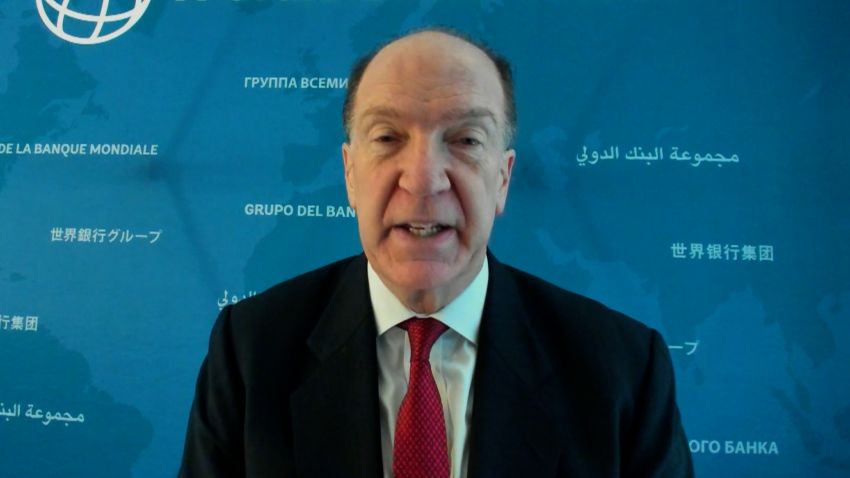
World Bank President: Rich are getting richer
Top business news 16 videos
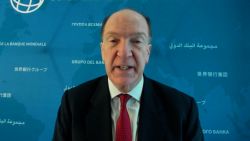
World Bank President: Rich are getting richer

You should probably change your passwords. Here's why
03:43
Now playing
- Source: CNN

Hear when Larry Summers thinks the US will enter a recession
03:17
Now playing
- Source: CNN

People in small town were left reeling after factory closure. Hear how they plan to vote
03:01
Now playing
- Source: CNN
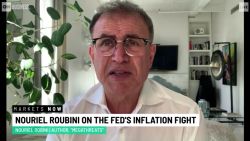
'Dr. Doom' explains why the Fed will lose its inflation battle
02:41
Now playing
- Source: CNN Business
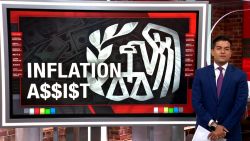
How IRS adjustments may impact your 2023 taxes
03:36
Now playing
- Source: CNN
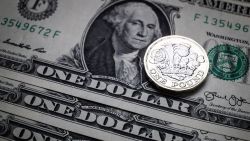
Here's what a strong US dollar means for you

Fitch is predicting a US recession in the spring. Here's what that means for you
04:42
Now playing
- Source: CNN

Watch two sisters get the 'surprise of a lifetime' at this drive-thru food pantry
03:11
Now playing
- Source: CNN

Consumer prices surge and mortgage rates hit 20-year high
02:40
Now playing
- Source: CNN
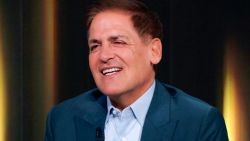
Mark Cuban responds to Elizabeth Warren calling out 'his buddies' over tax law
02:09
Now playing
- Source: CNN

A new vehicle system could stop you from driving above the speed limit
02:30
Now playing
- Source: CNN

'Made in America' is making a comeback
03:28
Now playing
- Source: CNN

See why this Florida town survived Ian unscathed
03:40
Now playing
- Source: CNN
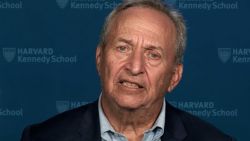
Is the Musk Twitter deal back on?! Here are the winners and losers
01:51
Now playing
- Source: CNN

Hundreds of companies are trying the four-day work week. Here's how it's going
04:54
Now playing
- Source: CNN Business
New York CNN Business —
Citigroup is saying goodbye to overdraft fees, making it the biggest US bank to pledge to eliminate the controversial charges.
By this summer, Citi plans to get rid of overdraft fees, non-sufficient funds fees and overdraft protection fees, the bank exclusively told CNN on Thursday.
The changes mean Citi (C) will be the only one among the top five US retail banks by assets to abolish the fees that many Americans despise, and that consumer advocates say unfairly punish society's most vulnerable.
Citi joins a growing list of lenders making changes or outright eliminating overdraft fees amid pressure from lawmakers in Congress and growing competition from online rivals.
Alex Horowitz, principal officer at The Pew Trusts, hailed the elimination of overdraft fees by a major bank as an "unequivocal win" for consumers.
"It's great news because it helps consumers stay in the banking system and avoids them from being charged penalty fees at a time when they can least afford it," Horowitz said. "And it gives them time to recover from a financial difficulty and get back on their feet. It can help keep households solvent."
Citi said it will continue to provide overdraft protection services to help consumers cover negative balance transactions, including the ability to transfer funds from a linked Citi savings account and an automatic personal line of credit. The bank said fees for those services also will be eliminated as part of the new changes.
"We're tremendously proud to eliminate these fees altogether," Gonzalo Luchetti, CEO of US Personal Banking at Citi, told CNN in a statement. "These changes empower our customers to build long-term financial wellness with access to more affordable banking services."
It's worth noting that, at least as of recently, Citi has not relied on overdraft-related fees for revenue as much as many of its peers. That suggests the bank won't take a sizable hit by getting rid of the fees.
Citi generated $70 million of overdraft and non-sufficient funds revenue through the first nine months of last year, according to the Consumer Financial Protection Bureau.
Regulators say rivals generated far more revenue from these fees, including Wells Fargo (WFC) ($1 billion), JPMorgan (JPM) ($924 million), Bank of America (BAC) ($823 million) and TD Bank (TD) ($347 million).
Based on its $1 trillion in US assets at the end of last year, Citi is America's fourth-largest bank. The largest US bank is JPMorgan.
In December, Capital One (COF) became the first big bank to promise to eliminate overdraft fees. The No. 10 US bank by assets with $381 billion as of the end of 2021, Capital One (COF) said it would end all fees for overdrafts and non-sufficient funds, also known as bounced checks.
Smaller banks including Ally and digital-only lender Alliant have also recently eliminated overdraft fees.
Last month, Bank of America announced plans to cut fees for bounced checks and to cut overdraft fees from $35 to $10, beginning in May. BofA, the No. 2 US bank by assets, said the changes would slash the fees it receives from overdraft by 97% from 2009 levels.
Last year, JPMorgan Chase also said customers won't pay overdraft service fees when their accounts are overdrawn by $50 or less, and eliminated the fees incurred when the bank doesn't pay a check or electronic payment when customers don't have enough money in their account.
Most of America's top 20 banks have made significant changes to overdraft fees recently, including eliminating fees and providing grace periods, according to The Pew Trusts.
"Overdraft fees can push consumers' budgets over the edge, because they occur when consumers have no money in their accounts," said Horowitz. "The biggest impact is to low-income, low-asset and Black and Hispanic households."
On average, consumers who incur the most overdrafts have deposits of barely $2,500 per month, Horowtiz said.
Frustrated by high fees, countless Americans have left the banking system altogether. Unbanked households typically rely on expensive check cashers. And they often lose access to auto loans, credit cards and, crucially, mortgages.
wainwrightyould1955.blogspot.com
Source: https://www.cnn.com/2022/02/24/investing/citi-bank-overdraft-fees/index.html
0 Response to "Dick Traber the Senior Vice President of Greenstar Bank Who Wants to Continue High Overdraft Fees"
Post a Comment